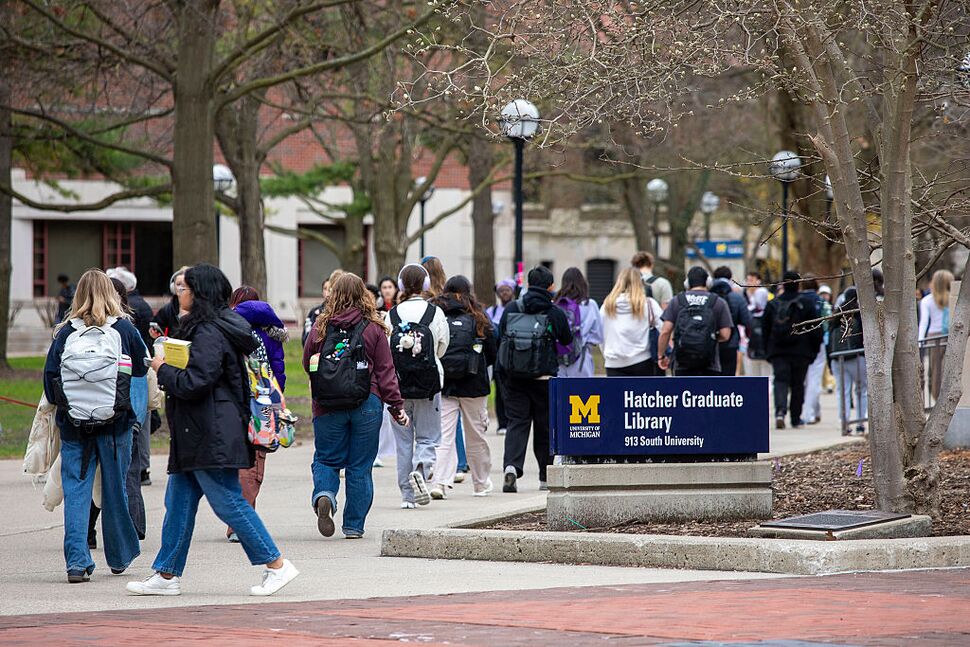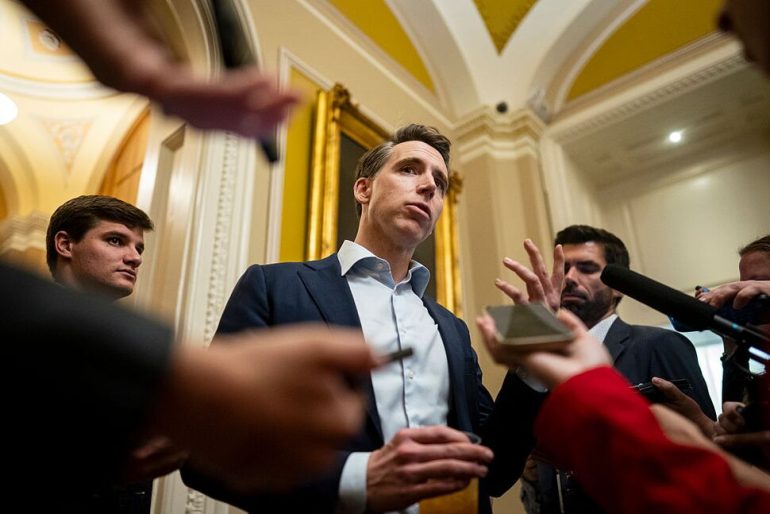Listeners:
Top listeners:
-
 play_arrow
play_arrow
The Breeze Radio The Breeze Radio
Trump Administration Targets Foreign Funding at Universities: What to Know

The Trump administration’s intense scrutiny of colleges and universities has yet another focus: foreign funding.
The Trump administration is cracking down on what officials describe as unchecked foreign influence on U.S. campuses, initiating investigations into the sources of foreign funding at several prominent universities amid a broader campaign to police higher education.
Last week the Department of Education opened an investigation into foreign funding at the University of Michigan after a review of the school’s reports “revealed inaccurate and incomplete disclosures,” according to the department. Paul Moore, chief investigative counsel at the agency, said the university incorrectly identified foreign funders as “nongovernmental entities,” though they appear to be “directly affiliated with foreign governments.”
“Despite the University of Michigan’s history of downplaying its vulnerabilities to malign foreign influence, recent reports reveal that UM’s research laboratories remain vulnerable to sabotage. … As the recipient of federal research funding, UM has both a moral and legal obligation to be completely transparent about its foreign partnerships,” Moore said in a statement.
The administration has opened similar investigations into Harvard University, the University of Pennsylvania and the University of California, Berkeley.
Critics on both sides of the aisle have expressed concern with foreign funding flowing into U.S. colleges and universities. They say the money raises questions about foreign influences over research as well as national security issues relating to potential espionage and theft of sensitive information.
But the move also comes in the context of President Donald Trump’s multipronged effort to reshape higher education. It follows billions in cuts to research grants in response to what the administration is calling antisemitism on campus, efforts to revoke the visas of foreign student activists, attempts to insert itself into the operations and administration of universities, changes to accreditation procedures, and State Department threats to curtail foreign student enrollment.
“I think what you’re seeing is the politicization or the weaponizing of federal policies,” says Sarah Spreitzer, American Council on Education vice president and chief of staff of government relations. “This administration is really using these federal regulations that have been around for a very, very long time to push a very specific agenda.”
Administration officials said their goal is to root out any foreign influence, but on the campaign trail Trump indicated universities were deserving of his ire because they were “leftist” and “communist.”
“After 50 years of leftist domination of the universities, I will take bold action to reclaim our colleges from the communist left,” Trump said during a speech in 2023. “Anti-American radicals will no longer be given a free hand to dominate our institutions of higher education. … We are going to choke off the money to schools that aid the Marxist assault on our American heritage and on Western civilization itself.”
How Did it Start?
Trump signed an executive order in April directing the education secretary to administer a decades-old law that he said had not been “robustly enforced.” Section 117 of the Higher Education Act requires institutions to report foreign funding gifts of $250,000 or more annually. The Republican-led House in March passed legislation – with some Democratic support – that would lower the reporting threshold for foreign gifts to $50,000. The Trump administration contends that in recent years universities “failed to disclose more than half of reportable foreign gifts.”
“It is the policy of my Administration to end the secrecy surrounding foreign funds in American educational institutions, protect the marketplace of ideas from propaganda sponsored by foreign governments, and safeguard America’s students and research from foreign exploitation,” Trump said in the executive order.
Former FBI Director Christopher Wray first raised concerns about foreign influence at college campuses, specifically Chinese influence, during Trump’s first term.
“The use of nontraditional collectors, especially in the academic setting, whether it’s professors, scientists, students, we see in almost every field office that the FBI has around the country,” Wray told the Senate Intelligence Committee in 2018. “I think the level of naivete on the part of the academic sector about this creates its own issues. They’re exploiting the very open research and development environment that we have, which we all revere, but they’re taking advantage of it.”
What Schools Have Been Investigated?
The Education Department in the last four months sent investigation notices to the University of Michigan, the University of Pennsylvania, Harvard University and the University of California, Berkeley. In each notice, the department said the university’s foreign funding disclosures are “incomplete” and “inaccurate.” It said in a press release that a finding of noncompliance “risks Department of Justice enforcement, including civil actions, or loss of federal funding eligibility.”
Shortly before leaving office in January 2021, the Trump administration opened investigations into Auburn University, Florida State University and Georgia State University, among others. That brought the number of investigations to 19 during Trump’s first term, mostly relating to disclosures about ties to China, according to a report this year from the Congressional Research Service.
The Biden administration did not open any new investigations or inquiries into universities’ foreign funding but inherited and settled 10 of the previous administration’s probes, including one high-profile case involving Stanford University.
How Are Schools Responding?
The University of Michigan released a statement the day after the investigation was announced and said it “takes its responsibility to comply with the law extremely seriously, and we will cooperate fully with federal investigators.”
At the University of California, Berkeley, assistant vice chancellor Dan Mogulof said in an email to Reuters that the university “has been cooperating with federal inquiries regarding 117 reporting issues, and we will continue to do so.”
“As standard practice, Harvard has filed Section 117 reports for decades as part of its ongoing compliance with the law. As is required, Harvard’s reports include information on gifts and contracts from foreign sources exceeding $250K annually. This includes contracts to provide executive education, other training, and academic publications,” Harvard spokesperson Jason Newton told The Boston Globe.
The University of Pennsylvania does not appear to have publicly responded to the investigation
Written by: Joshua Stuart
Similar posts
Recent Posts
Recent Comments
No comments to show.-

Regular Programing
Playing those non-stop feel good tunes from the 60s to the 90s.
close Chart
-
-
 play_arrow
play_arrow
You Are (Single Edit) Lionel Richie
-
-
-
 play_arrow
play_arrow
Da Ya Think I'm Sexy? (2008 Remaster) Rod Stewart
-
-
-
 play_arrow
play_arrow
I Just Called to Say I Love You (Single Version) Stevie Wonder
-
-
Top popular

How the Passage of the ‘Big, Beautiful Bill’ Could Impact Med Students and Hospitals

2 Charged In Connection With Unlicensed Cannabis Sales At Smoke Shops In Brookhaven Town: Cops

Brood Of 7 Ducklings Saved From Storm Drain On Long Island Expressway

Man Dies After Being Pulled Unresponsive From LI Pool: Police

New ALDI Discount Grocery Store Coming To Long Island
Get in Tune with Us!
Reach out to us for inquiries, requests, or collaborations, and let’s keep the music alive.
© 2025 Stuart Broadcasting Studios. All Rights Reserved.












Post comments (0)